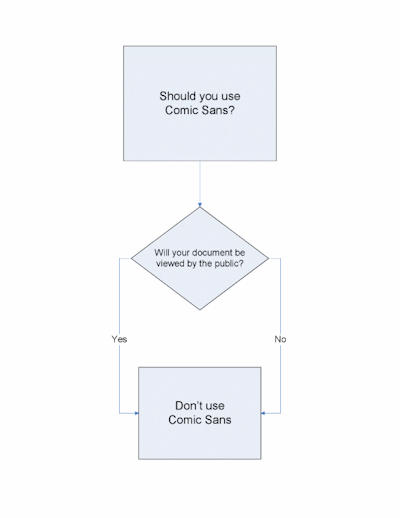Kudos to Aaran for posting this link in a comment. It’s awesome.
Max Kerning has dedicated his life to properly spaced type. His homepage is probably not something you want to visit with the sound turned up in your office. You can also follow him on Twitter.
He wrote a manifesto – called “Letters to Live By” which contains many useful typographic tips.
Like these:
“Typographic integrity cannot be feigned, and pretending with type only leads to disillusionment. Never, ever, ever fake condensed type. Do not try to create your own kerning pair when a master has already done it for you. Emulating a type style with a word processing button should never be done if the font includes a typeface in that style.
For example, you must not italicize Gill Sans when you can set it in Gill Sans Italic. It may seem like the same thing, but it’s impertinent and inconsiderate.”
It is not the shortening of words into grunt-like abbreviations that troubles me so. Instead, it is the fact that 96 percent of all written communications in the world contain words that by their very appearance dissuade people from reading them.
The reason more people do not glean wisdom from War and Peace is not because it is dull. The reason people only pretend to have read Ulysses is not because of the maddening run-on sentences and dearth of punctuation. No. Absolument non! It is because no one has taken the time and care to properly set the type, thus rendering the words useless.
Let us never underestimate the importance of kerning…
“To truly increase literacy, typography must be taught in even the earliest grades. If we do not instill in our young citizens the importance of properly set type— and the ability to kern—then we will perpetuate the cycle of creating literature with unattractive letter spacing that no one wants to read (and no one will read), causing people’s literacy to grow sloppy and feeble and atrophied.”














